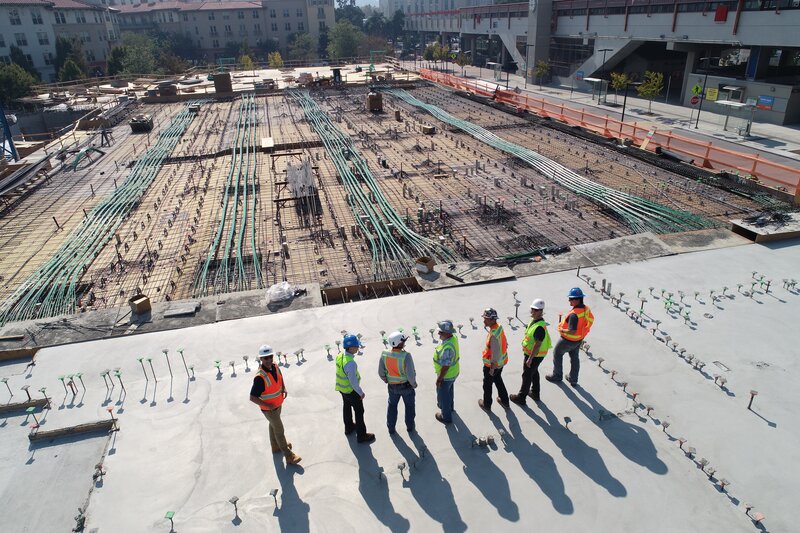The construction industry is a high-pressure, high-stakes environment that can impose significant stress on workers, putting their mental health at risk. Mental health issues in the construction industry are prevalent, affecting not only the well-being of individual employees, but also the overall productivity and success of construction businesses.
It’s crucial for construction companies to prioritise mental health as part of their workplace health and safety strategies and create a supportive environment that fosters employees’ mental well-being.
CR Training Solutions is a leading training and consultancy company specialising in the construction industry. We are committed to facilitating a healthier, safer, and more supportive workplace environment through our accredited courses on mental health, first aid, and workplace safety.
Our expert team offers practical guidance and resources to help construction businesses identify and tackle mental health issues, fostering a workplace culture that values and supports mental well-being. By promoting mental health in the construction industry, we can not only enhance worker well-being but also improve productivity and job satisfaction, ultimately contributing to the overall success of the industry.
Understanding the Mental Health Challenges in Construction
To effectively address mental health in the construction industry, it is essential to understand the unique challenges faced by workers in this sector. Long hours, tight deadlines, and physically demanding work can contribute to increased stress levels and a higher risk of mental health issues.
Additionally, the often transient nature of construction work, with workers moving frequently between projects and teams, can lead to feelings of isolation and difficulty accessing support services. Identifying the specific causes of poor mental health among construction workers can help businesses tailor their interventions and create a more supportive environment.
Raising Awareness and Reducing Stigma
One of the most significant barriers to improving mental health in the construction industry is the stigma associated with discussing mental health issues. This can prevent workers from seeking help, compounding the impact of mental health problems on their personal and professional lives. To reduce stigma and promote open conversations about mental health, businesses can:
- Provide mental health training and education: Offer training sessions or workshops that educate employees about mental health, its importance, and early warning signs. This encourages a shared understanding and helps workers feel more comfortable discussing mental health concerns.
- Create opportunities for mental health conversations: Regularly address mental health topics in staff meetings or team huddles, reinforcing its importance and demonstrating leadership’s commitment to supporting worker well-being.
- Share personal stories: Encourage leaders and supervisors to share their experiences with mental health challenges, fostering an atmosphere of understanding and openness.
- Dispel common misconceptions: Address and debunk common myths surrounding mental health, such as the belief that mental health issues are a sign of weakness or that discussing mental health is unprofessional.
Building a Supportive and Inclusive Workplace Culture
A supportive and inclusive workplace culture is essential for promoting mental health in the construction industry. This requires the active involvement of leaders, supervisors, and employees at all levels. Here are some strategies that can help build a mentally healthy workplace culture:
- Encourage work-life balance: Respect employees’ personal time and promote a healthy work-life balance by setting realistic deadlines, allowing for flexible working arrangements, and discouraging excessive overtime.
- Foster shared trust and respect: Encourage open communication, mutual respect, and trust among team members. This can be achieved through team-building activities, debriefing sessions, and regular feedback.
- Offer mental health resources: Make mental health resources, such as leaflets, posters, or helpline information, readily available to staff, ensuring that employees know where to turn for support.
- Train mental health first aiders: Train designated employees as mental health first aiders, providing them with the skills and knowledge to recognise and respond to mental health concerns within the workplace.
Implementing Practical Support Measures
In addition to fostering a supportive culture, businesses can implement practical measures to directly support their employees’ mental well-being:
- Employee assistance programmes (EAPs): Provide access to confidential counselling and support services, offering employees a safe space to discuss their mental health concerns and obtain professional advice.
- Peer support groups: Organise regular peer support group meetings, enabling employees to share their experiences, discuss challenges, and offer mutual support.
- Mental well-being check-ins: Conduct regular mental well-being check-ins with employees, providing an opportunity to discuss any concerns and offer targeted support.
- Time off and stress management: Encourage employees to take regular breaks and annual leave, and provide access to stress management tools and techniques.
Addressing the Stigma: Mental Health In The Construction Industry
Promoting mental health in the construction industry requires a multifaceted approach, including raising awareness, reducing stigma, building a supportive workplace culture, and implementing practical support measures. By prioritising mental health and fostering an environment where employees feel comfortable discussing their well-being, construction businesses can enjoy increased productivity, reduced absenteeism, and a healthier, more resilient workforce.
CR Training Solutions is dedicated to helping construction businesses create supportive, safe, and successful working environments. Our accredited courses and expert consultancy services cover a wide range of topics, including mental health, first aid, and workplace safety, providing construction companies with the tools and knowledge they need to meet the unique challenges of their industry.
Partner with CR Training Solutions to invest in the mental well-being of your workforce, and build a stronger, more sustainable future for your construction business with our wide range of workplace mental health training in Edinburgh.




